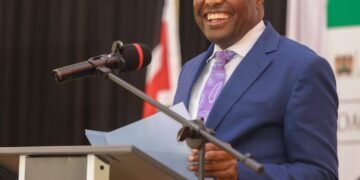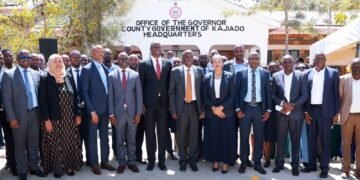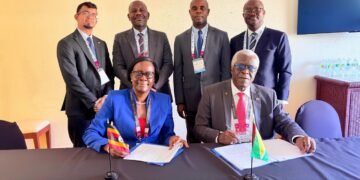The Federal Inland Revenue Service (FIRS) and the Nigeria Customs Service (NCS) have stepped up collaboration to ensure the Nigerian National Single Window (NSW) platform is delivered within the government’s first-quarter 2026 deadline. At a high-level meeting on Tuesday, both agencies reviewed their ongoing partnership with the NSW Secretariat and agreed on concrete steps for integration and implementation.
Launched by President Bola Tinubu in April 2024, the NSW is designed to simplify trade procedures, enhance transparency, and improve Nigeria’s competitiveness in global commerce. The President has directed the NSW Steering Committee to ensure the digital trade platform becomes fully operational by early 2026.
FIRS Executive Chairman, Dr. Zacch Adedeji, said synergy between both agencies was crucial to meeting the target date. “We want to synergize with the NCS. Mr President has given us till the first quarter of 2026, and I am here to support the Customs Service to achieve the launch of the National Single Window,” he said, adding that the first phase is scheduled for March 2026. He noted that integrating the revenue-collection systems of FIRS and Customs would improve efficiency and significantly boost the country’s non-oil revenue base.
NCS Comptroller-General, Adewale Adeniyi, described the NSW as a priority policy for the current administration, explaining that the aim was to develop a modern trade ecosystem through the use of advanced technology in clearance and compliance processes, ultimately fostering efficiency and reducing bottlenecks in the movement of goods.
NSW Director, Tola Fakolade, said the project had moved beyond the assessment stage into the critical development and integration phase. “Seamless integration at this stage is essential for meeting the Q1 2026 operational target. We are here to ensure the necessary support is in place to stay on track,” he said.
When fully operational, the NSW is expected to cut cargo clearance times, reduce operational costs, and eliminate bureaucratic delays, enabling Nigerian businesses to trade more efficiently both locally and internationally. Government revenue is projected to grow through reduced leakages and improved compliance, while consumers could benefit from lower prices and faster access to goods. Fakolade added that the system would also enhance Nigeria’s position in global trade, attracting foreign investment and creating jobs across multiple sectors.
The NSW aims to harmonize all trade-related agencies on a single portal, enabling importers and exporters to process documentation and clear goods more efficiently. By reducing port delays, minimizing human interference, and eliminating overlapping bureaucratic procedures, the initiative is expected to drive increased investment and support economic diversification. The steering committee includes representatives from the Ministries of Finance and Trade, the FIRS, and the Nigeria Customs Service.






























































